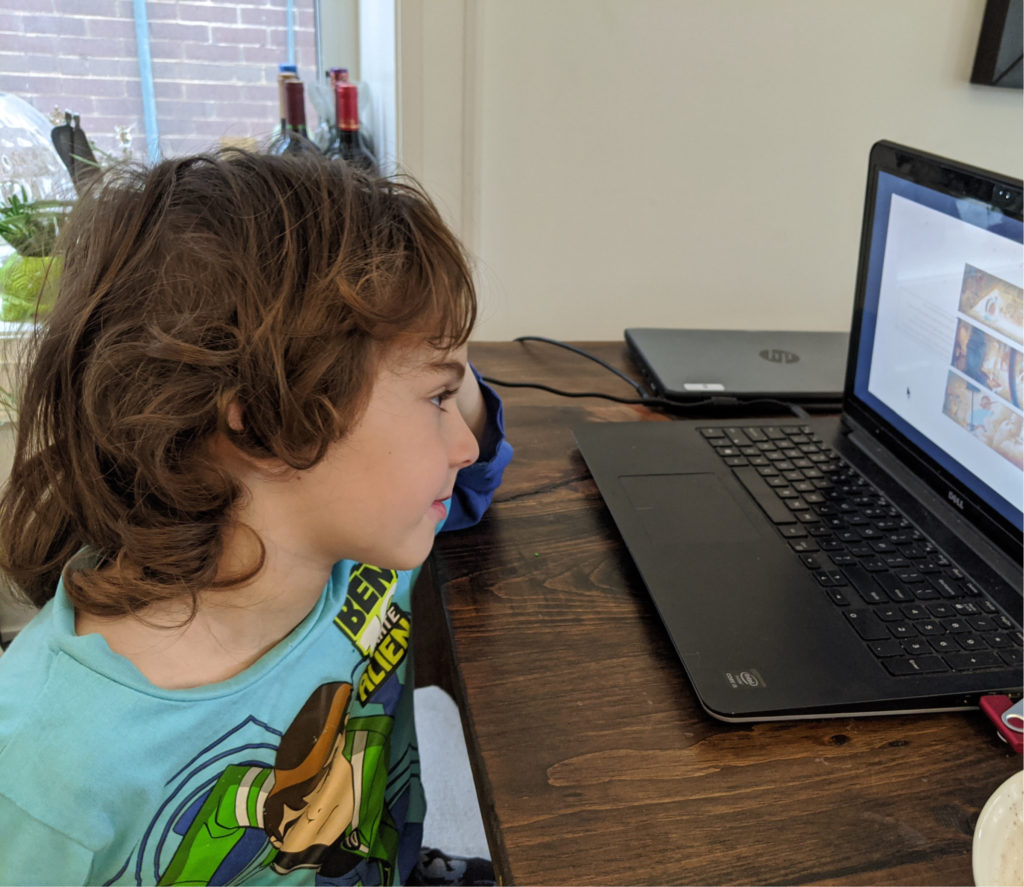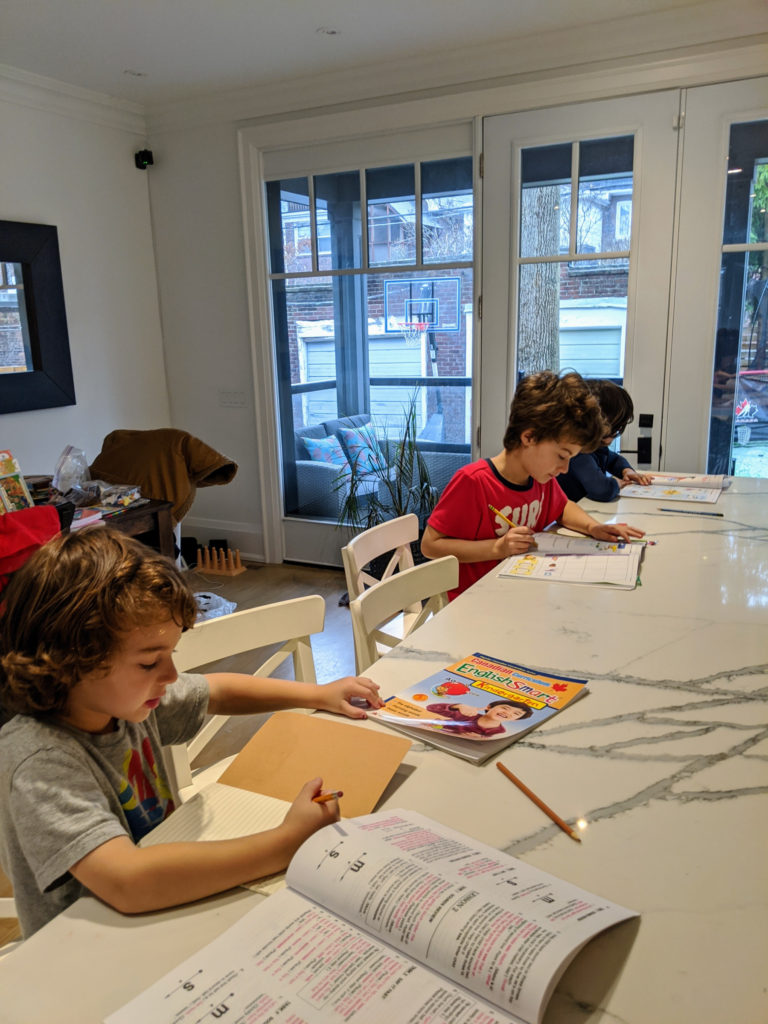October is Dyslexia Awareness Month and to help spread awareness and acceptance, I wanted to share our story of how it has impacted our life. My hope is that through my story, you will learn that dyslexia is a) very prevalent and common and b) is very misunderstood and c) that there are lots of support & tools available to support your child.
Our own journey of navigating life with a child who has a form of dyslexia started three years ago. Through our own intuition, and support from our son’s teacher, we realized that he might have a learning disability. We got him tested and we confirmed our suspicion. Despite his high IQ, our son has a learning disability related to dyslexia. It was actually very lucky that we found out about his challenge because he masked it well. We have since got him the support he requires both at school and privately. However, we know that this will be a lifelong challenge for him. Our hope is to provide him with the tools and knowledge to navigate this for life. For us, early intervention, getting the appropriate support and advocating for our son were key. One thing we know for sure is that a lot of successful individuals have dyslexia and while challenging and frustrating at times, your child can live a very ordinary, happy and successful life. You can read in more detail about our journey in THIS POST.

Dyslexia facts
Dyslexia is a brain-based learning difference that makes learning to read more difficult. According to the International Dyslexia Association, 15-20% of the population has a language-based learning disability. Dyslexia doesn’t discriminate between genders, ethnic differences and socio-economic backgrounds. As well, it doesn’t take away an individuals’ ability to thrive, be successful or a productive member of society.
It’s important to know that dyslexia is hereditary. This fact is helpful in explaining to your child that they didn’t do anything ‘wrong’. Their struggles to read isn’t because they aren’t smart or because they aren’t trying hard. The way we explained it to our son is by saying that he was born with a small part of his brain that wasn’t developed and that it’s not his fault, but it is up to him to work hard (with our support) to find ways to compensate for what doesn’t come naturally to him (but might to his peers).

Support
Covid-19 has exemplified the importance of technology to keep us connected with our loved ones, work and school. For some students however, technology is just as crucial to their education year-round, as a learning aid at school.
We worked with a child psychologist and the school to put together a plan that consists of an Individual Education Plan (for his in-school modifications) and working on assistant technology (whereby our son received his own laptop for school use and accessed speech to text software for writing).
While some teachers have been great making the required modifications, not all have been helpful or necessarily know what to do. We realized early on that it’s up to us (his parents) to advocate for him. In order to ensure our continued support, it’s imperative that we stay informed through on-going education about dyslexia and what aids are available. Similarly, we believe that it’s just as important for educators to learn about dyslexia so they can empower their students.
Through my research I found that Microsoft offers both options. Technology and software as a tool and various information and webinars for parents and educators.

Microsoft Learning Tools
While we knew that technology can assist him through things like ‘voice to text’, we also learned that Microsoft Office 365 (which is available for free to Students and educators at eligible institutions ) has sooooo many great learning tools that he could use.
Learning tools help improve reading through ‘features that reduce visual crowding, highlight text, break words into syllables, read text aloud, and provide visual references.’ Also, features like Dictate and Read Aloud, enable students to hear their writing read aloud – providing them essential feedback to edit their work and clearly communicate their ideas to others.’
I’m going to take the time to familiarize myself with these tools so I can show them to my son. Just as important, I’ll share these tools with my son’s teachers so they can assist him, but also future students in the hopes that they can create a learning environment that is more accessible and inclusive.
Microsoft Discovering Dyslexia Webinars
To properly advocate for my son, I need to arm myself with knowledge. That’s why I signed up Microsoft’s various (and free) Discovering Dyslexia webinars. I also already sent the links to my son’s teacher and our school administrative department so they can attend and share this with other teachers, as I know that many students and educators can benefit from these webinars and resources available through Microsoft.
Microsoft’s Dyslexia DecodEd Webinar Series provides educators with information on how to best support students with dyslexia so they can succeed. Topics include: Navigating Dyslexia, learning differently with Dyslexia, and decoding the future of Dyslexia.
Disclosure: This is a sponsored post written by me on behalf of Microsoft. All opinions are 100% mine.